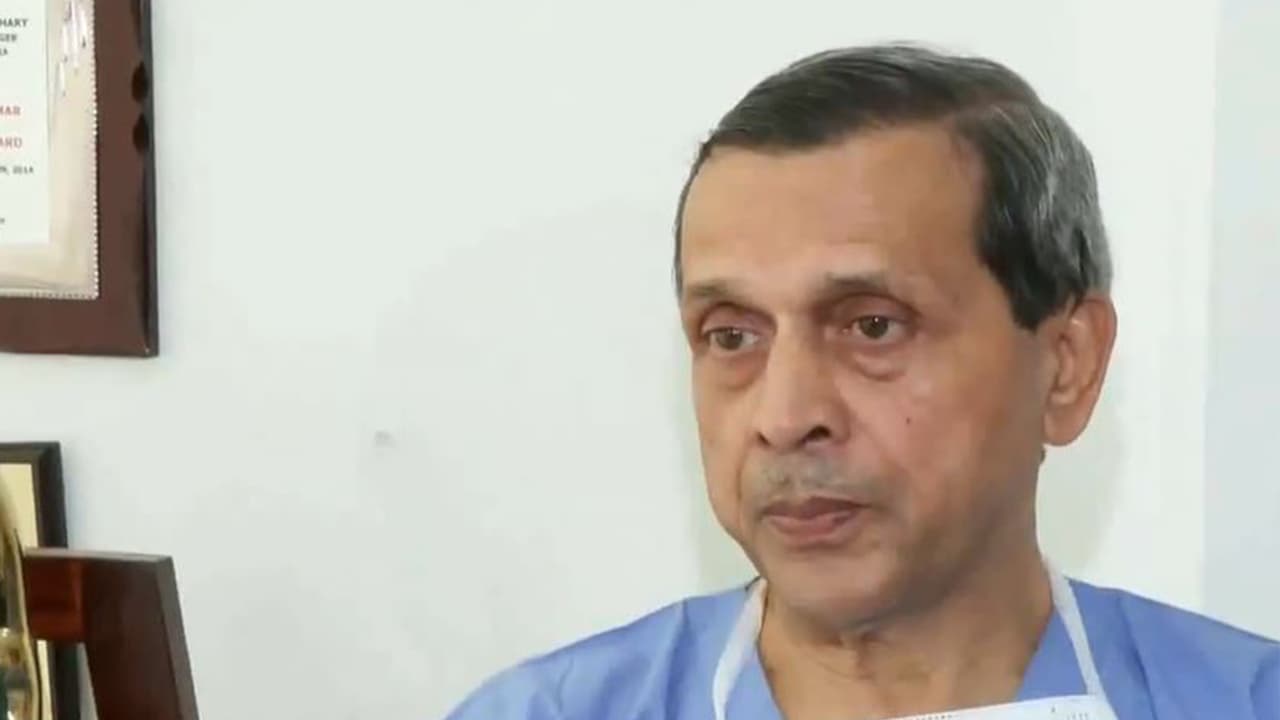Doctors in Delhi-NCR warn of a severe health crisis due to high air pollution, with hospitals overwhelmed by respiratory cases, particularly in children. The AQI remains in the ‘very poor’ and ‘severe’ categories, prompting expert advice to stay indoors.
Spike in Respiratory Cases Amidst ‘Very Poor’ Air Quality
Medical specialists have warned residents of Delhi-NCR about a severe health crisis triggered by the high air pollution in the region. Dr Arvind Kumar, Thoracic (Chest) Surgeon & Lung Health Specialist, Medanta Hospital, said that hospitals are seeing a spike in cases related to effect of pollution The NCR Region faces poor air quality with the Air Quality Index (AQI) recorded at 345 at 8 a.m. on Monday, placing the national capital firmly in the ‘very poor’ category.
While talking to ANI, Dr Arvind Kumar described how hospitals are overwhelmed with respiratory cases, especially among children, due to air pollution. It includes symptoms like cough, cold, fever and difficulty breathing. “There are patients all around. Everywhere, children are being brought to hospitals coughing, sneezing, having a runny nose, breathing fast, and having a fever. We have patients who are coming back with a cough or pneumonia. There is a huge spike in the number of chest cases. It’s all the doctors across the city,” said Dr Arvind Kumar.
Doctor’s Warning on Self-Medication and Safety Advice
While addressing the result of growing concerns among the national capital’s population due to air pollution, the Chest Surgeon said that people have resorted to the usage of Nebulisers, which help patients inhale medicine directly into their lungs. “The most common thing being used today is the nebuliser. Many of my friends have bought the machine. It is actually wrong because self-administration of medicine can be harmful. Once you are breathing in air with AQI of 700, there is no way that you can avoid these diseases,” said Arvind Kumar.
The Thoracic (Chest) Surgeon & Lung Health Specialist of Medanta Hospital advises people to “stay indoors” and avoid going to “crowded areas” to keep themselves safe from the high air pollution. “Stay indoors as much as you can. Avoid going to crowded areas. Take medicines regularly. Keep yourself well hydrated. Avoid fatty foods. If you develop redness or itchiness in the eyes, you can put ice-cold water,” added Dr Arvind Kumar.
‘Severe’ Air Quality and Official Measures
Meanwhile, the air quality in the national capital plunged into the ‘severe’ category on Sunday, with the overall Air Quality Index (AQI) recorded at 391 at 7 am, according to data from the Central Pollution Control Board (CPCB). Several parts of the city registered alarming pollution levels with AQI readings crossing the 400-mark. As per CPCB data, Anand Vihar recorded an AQI of 412, Alipur reported 415, and Bawana registered the highest level at 436. Chandni Chowk recorded an AQI of 409, while RK Puram and Patparganj logged 422 and 425, respectively. Sonia Vihar also recorded a ‘severe’ AQI of 415, indicating hazardous air conditions across the city.
Since Diwali, the Air Quality Index (AQI) in Delhi and the National Capital Region (NCR) has been reeling under the ‘poor’ and ‘very poor’ categories in several areas, even as Stage 2 of the Graded Response Action Plan (GRAP) remains in effect. The New Delhi Municipal Council (NDMC) has already announced the doubling of parking fees across the national capital after the Graded Response Action Plan (GRAP) Stage II was invoked due to deteriorating air quality.
Understanding AQI Categories
According to CPCB, an AQI between 0 and 50 is considered ‘good’, 51-100 ‘satisfactory’, 101-200 ‘moderate’, 201-300 ‘poor’, 301-400 ‘very poor’, and 401-500 ‘severe’. (ANI)
(Except for the headline, this story has not been edited by Asianet Newsable English staff and is published from a syndicated feed.)
